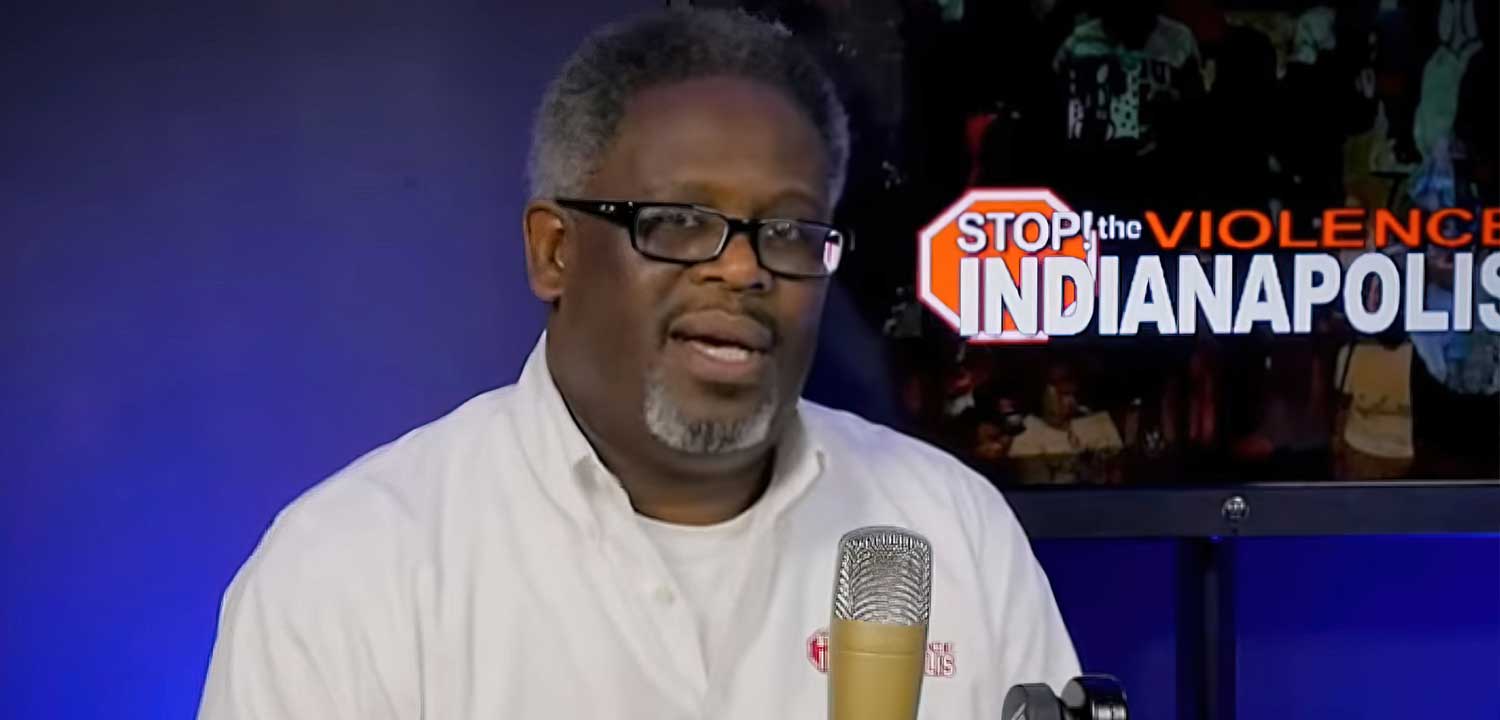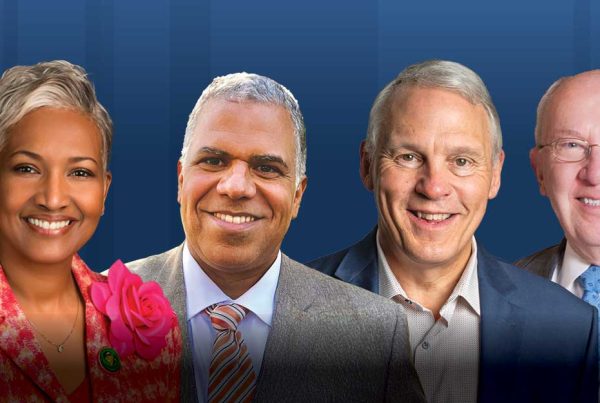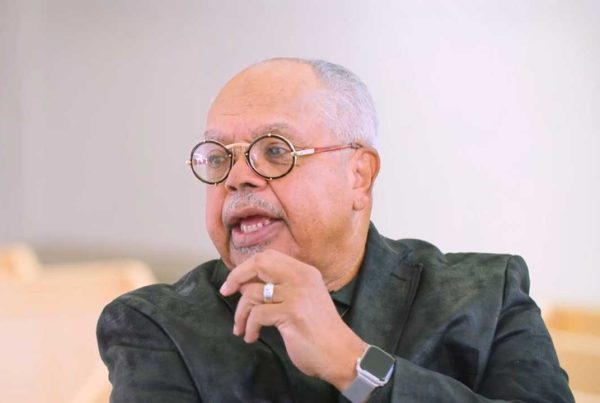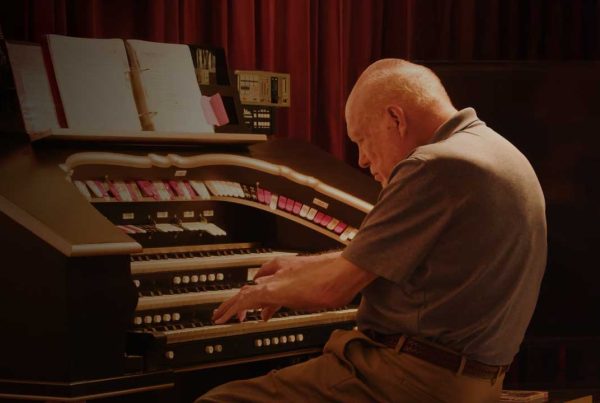Ending Gun Violence
Written by: Lindsey Rabinowitch, Director of the Faith & Action Project
One morning a few weeks ago, Anthony Beverly, founder of Stop the Violence Indianapolis, sat down to talk about gun violence with a young man who knew something about it: The young man and a rival were on the verge of settling a disagreement with guns.
Beverly spent most of the day with the young man, urging him to find another way. Finally, at about 3 o’clock – after almost six hours – the young man agreed to a truce: “If he’ll put his gun down,” he told Beverly, “I’ll put mine down.” However, before the pastor could close the loop on the agreement, the second young man was arrested, in part for possession of a gun.
A few months earlier, Beverly, who serves as director of Stop the Violence Indianapolis, had taken a different approach to curbing shootings, gathering together leaders and members from 37 area churches to pray and discuss a strategy for ending gun violence. They talked about the role of the church and the role of government, about policies that could help, and more.
In those two events, Beverly demonstrated what he and others say will be necessary to make meaningful progress: activities that range from one-on-one dialogues to communitywide activism. As New Beginnings Fellowship Church Executive Pastor Dr. Alexia Ellis put it, “It’s got to be systemic and relational.”
This was one of the key conversation points when CTS Faculty member Dr. Rev. Bill Kincaid and I hosted Beverly, Dr. Ellis, and the Rev. Dr. Mark Johnson, a pastor from Lexington who has a heart for eliminating gun violence, to talk about the role congregations can play in reducing the number of shootings in Indianapolis.
This is not a new topic for CTS. We have engaged by participating in protest walks, hosting prayer vigils, and providing a 2020 Faith & Action Project grant directly related to gun violence. The $30,000 grant supported Faith IN Indiana’s initiatives including, among other things, Group Violence Intervention, a research-backed program that identifies individuals most likely to be perpetrators of gun homicides, surrounds them with social support, and offers them an honorable exit from street crime.
In Indianapolis, the government, nonprofits, churches and other have undertaken a number of efforts to reduce gun violence, and since 2020, Mayor Joe Hogsett and city officials have pursued a gun-violence-reduction strategy that proved effective in Oakland, California. But the violence persists, with nearly two people a day being shot in the Circle City.
Needless to say, this conversation with Beverly, Dr. Ellis, and Rev. Dr. Johnson was timely.
Some themes resonated throughout conversation. First and foremost, perhaps, was the role of the church, which the pastors agreed needs to assert itself as the moral voice of the community and live up to that billing. Certainly, the church must lead with prayer, but it must complement that prayer with visible action and activism.
Another repeating motif was the need for unity and collaboration. A number of gun-violence-prevention initiatives exist, but many operate with little collaboration. We need to build understanding and empathy if we are going to lead to systemic change, putting aside egos and sense of ownership over solutions.
We also need to recognize the dynamics of our communities and correct them. Dr. Ellis said that after a conversation with a group of youth in Warren and Lawrence townships, they shared they find it easy to get a gun and feel it is necessary to carry for their protection. Beverly described how violence is normalized though Tik Tok, with smartphones feeding videos of gun violence to kids 24/7, leading to desensitization and teaching them to resolve conflict with guns.
With all of this going on, Rev. Johnson asked the local pastors how, on a scale of 1 to 10, local congregations would rate the issue of gun violence; they said it would be “10 out of 10.”
Asked what brings them hope and keeps them motivated, Beverly said, “I ask myself this question every day.” Thinking about where he grew up and the gun violence he experienced, he wants to see change. “Every now and again, you get a kid that says to me, what you did, saved my life,” he adds, “That keeps me going.”
The pastors see the implementation of the Oakland strategy as promising, but fear it has not been implemented “with full fidelity,” as some aspects are not fully embraced by all of the players. Beverly says he is encouraged by the social action committee CURVE, which is comprised of 15 congregational leaders coming to together to reduce violence (the group is open to new members), and to the follow-up activities from his November gathering. They will be gathering for a group prayer on May 21st, and several of the congregations already are putting ideas into action.
Beverly also is encouraged by the work of Prosecutor Ryan Mears, who has worked hard to go after the more serious crimes and help those who have been prosecuted for minor infractions such as possession of drugs by getting records expunged to help with getting felons jobs.
Dr. Ellis says seeing young people in her church listening to sermons and participating in the life of the church gives her hope, as does seeing New Beginnings let go of some traditions to be a place where the lost, troubled, and broken can find strength and healing for their souls. As an example, the church wants people to come as they are and now allows men and boys to wear hats. The senior pastor, Dr. James Anthony Jackson Sr., made this shift to make people feel welcomed and let them know the love and warmth of God.
Dr. Ellis also is inspired by the partnership her church has cultivated with Old Bethel United Methodist Church. The two churches are near each other but, with one being a predominately black church and the other a predominantly white church, there historically hasn’t been a lot of interaction. That changed when the congregations decided to partner together at the food pantry to serve the community. Since then, members from each church have served together as well as comforted and encouraged each other while dealing with the loss of members from homicides and accidents and going through life milestones together.
Dr. Ellis said she is inspired by the work of Pastor Mike McBride, who leads Live Free USA, a California-based non-profit organization and social justice network dedicated to ending gun violence, mass incarceration, and mass criminalization through education, advocacy, and direct action. A key attribute of the Live Free approach? A blend of broad-based activism and one-on-one connections. In other words, it’s systemic and relational.
Five key take-aways:
- The church must lead, serving as a moral voice. Prayer must be the foundation, but congregations also need to stay informed so they can connect people with resources and speak up when needed.
- We must unify, putting aside egos, traditions, theological differences, and so on in order to work toward a common goal of reducing gun violence. And if we are pursuing a broad approach – such as the Oakland strategy – we must pursue it completely, with full participation and alignment.
- We need community-based interventions, but we also need to think relationally. If we don’t understand one community’s trauma, we won’t fight for systemic change. Our policies must reflect the love and dignity for all people, including those who have been incarcerated.
- We have to stop the sale of so many firearms. Young people shouldn’t have easy access to firearms.
- We must speak up. Silence isn’t the answer.
Participants in Gun Violence Conversation at CTS on May 11, 2023
Anthony Beverly, Stop the Violence Indianapolis – http://stoptheviolenceindy.org/
Dr. Alexia Ellis, Executive Pastor at New Beginnings Fellowship Church and CTS Graduate
Rev. Dr. Mark Johnson, Senior Pastor, Central Baptist Church since 2005. With experience working with churches from Louisville to Lexington, Mark is a leader for social justice and progressive change within Baptist Churches in Kentucky
Rev. Dr. Bill Kincaid, Herald B. Monroe Professor of Leadership and Ministry Studies at CTS
Lindsey Nell Rabinowitch, Director, Faith & Action Project






